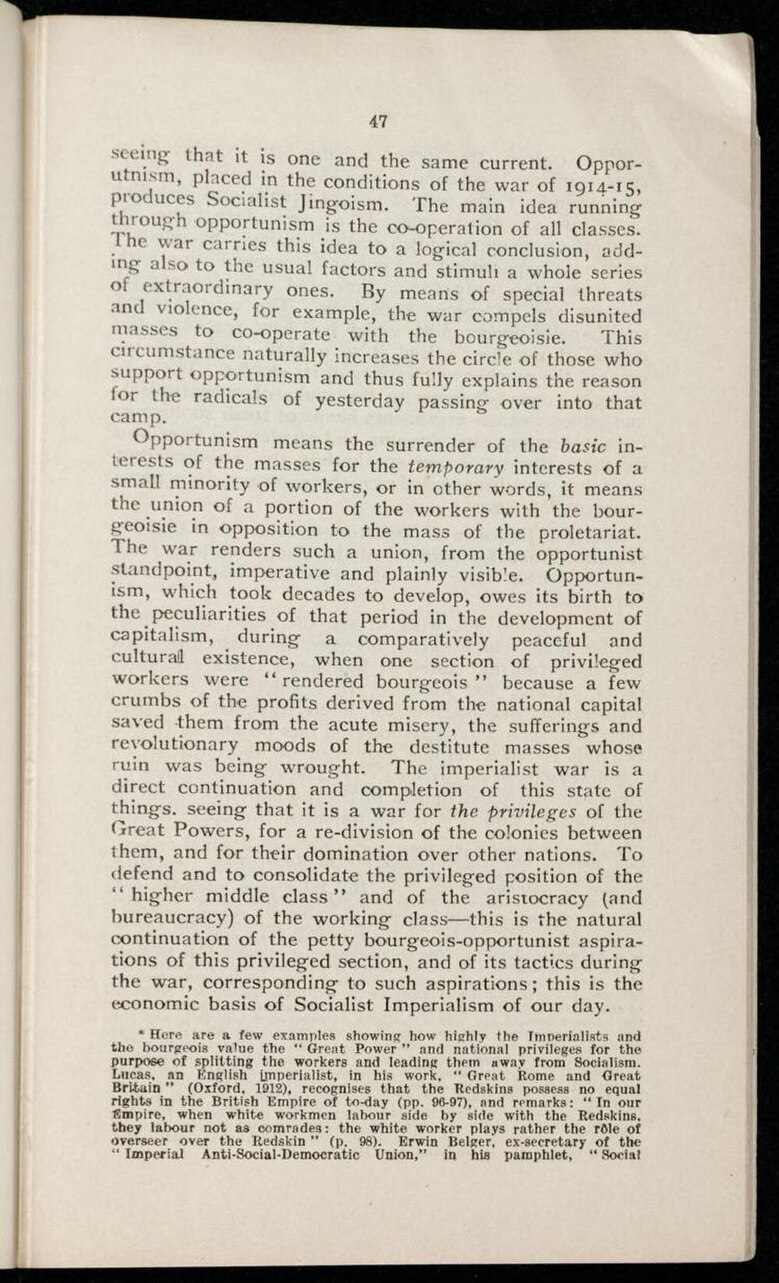47
seeing that it is one and the same current. Opporutnism, placed in the conditions of the war of 1914–15, produces Socialist Jingoism. The main idea running through opportunism is the co-operation of all classes. The war carries this idea to a logical conclusion, adding also to the usual factors and stimuli a whole series of extraordinary ones. By means of special threats and violence, for example, the war compels disunited masses to co-operate with the bourgeoisie. This circumstance naturally increases the circle of those who support opportunism and thus fully explains the reason for the radicals of yesterday passing over into that camp.
Opportunism means the surrender of the basic interests of the masses for the temporary interests of a small minority of workers, or in other words, it means the union of a portion of the workers with the bourgeoisie in opposition to the mass of the proletariat. The war renders such a union, from the opportunist standpoint, imperative and plainly visible. Opportunism, which took decades to develop, owes its birth to the peculiarities of that period in the development of capitalism, during a comparatively peaceful and cultural existence, when one section of privileged workers were "rendered bourgeois" because a few crumbs of the profits derived from the national capital saved them from the acute misery, the sufferings and revolutionary moods of the destitute masses whose ruin was being wrought. The imperialist war is a direct continuation and completion of this state of things. seeing that it is a war for the privileges of the Great Powers, for a re-division of the colonies between them, and for their domination over other nations. To defend and to consolidate the privileged position of the "higher middle class" and of the aristocracy (and bureaucracy) of the working class—this is the natural continuation of the petty bourgeois-opportunist aspirations of this privileged section, and of its tactics during the war, corresponding to such aspirations; this is the economic basis of Socialist Imperialism of our day.[1]
- ↑ Here are a few examples showing how highly the Imperialists and the bourgeois value the "Great Power" and national privileges for the purpose of splitting the workers and leading them away from Socialism. Lucas, an English imperialist, in his work, "Great Rome and Great Britain" (Oxford, 1912), recognises that the Redskins possess no equal rights in the British Empire of to-day (pp. 96–97), and remarks: "In our Empire, when white workmen labour side by side with the Redskins, they labour not as comrades: the white worker plays rather the rôle of overseer over the Redskin " (p. 98). Erwin Belger, ex-secretary of the "Imperial Anti-Social-Democratic Union," in his pamphlet, "Social
